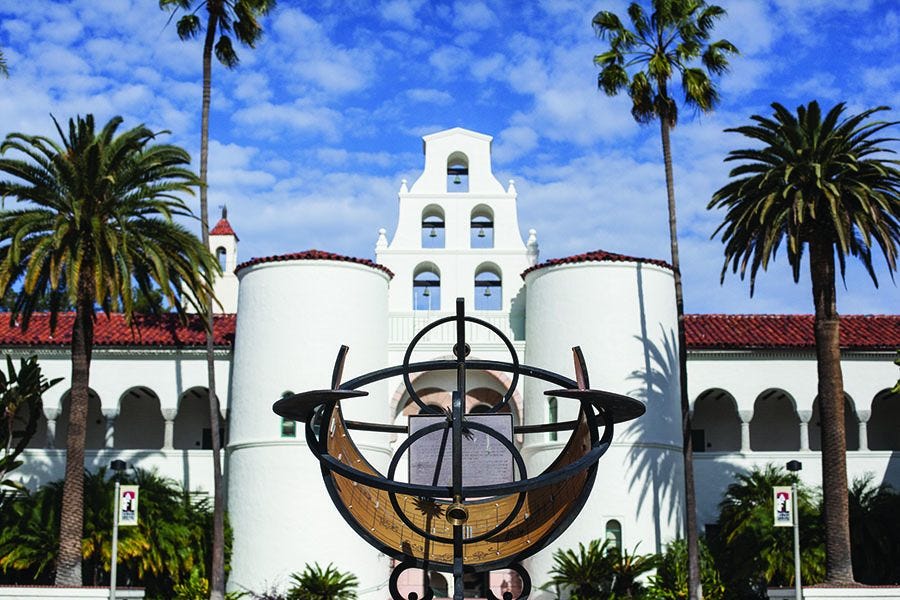Kumeyaay Land Acknowledgement no longer required after faculty complaints
University Senate members vote to remove the requirement
Noé Sandoval wrote this article for San Diego State’s Daily Aztec. It is available for republication or reference. If you think their work is important, you can support it here.
File Photo
The debate for having the Kumeyaay Land Acknowledgement cited and stated as a requirement for syllabi at SDSU was discussed at the university senate meeting on March 1.
Since 2019, it has been a requirement for SDSU professors to include the land acknowledgement in their course syllabi. This sparked concern in some professors this past couple of weeks as they said they didn’t want to feel imposed to follow through with language forced upon the university.
Steven Barbone, a SDSU professor from the philosophy department, was one of the proponents of this revision and expressed the acknowledgement infringed upon professors’ rights.
“As a professor, we value academic freedom,” Steven Barbone said. “There is a clause from the acknowledgement too close to a prayer.”
Barbone compared the clause for the acknowledgement, “We find inspiration in the
Kumeyaay Spirit…,” to a symbol of worship exchanging the last words to “the Hail Mary” and “Satan.”
This outraged many voters and attendees.
“It is inappropriate and extremely disrespectful to compare a section of the Land Acknowledgement to Satan,” Associated Students President Ashley Tejada said.
During the meeting, this requirement was voted to be removed from the syllabus policy, making it optional for professors to require the acknowledgement. The senate voted for this revision during the meeting with 44 votes for the revision, 38 against and 7 abstained.
This revision means that the acknowledgement clause will be removed from the syllabus requirements.
“As a university located on the historic lands of the Kumeyaay Nations, faculty retain the option to include the SDSU Land Acknowledgement statement (the abbreviated or full version) in their syllabus as recognition that SDSU resides on the land of the Kumeyaay, and as an expression of the university’s commitment to advancing access, justice, equity, diversity, and inclusion,” according to the March 1 meeting agenda.




